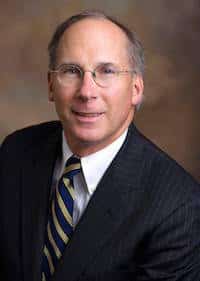For large institutional investment houses, there is getting the next trade right, and there is the bigger issue of speaking out about getting market structure right.
T. Rowe Price, which manages $747 billion, does both. Its trading desk is well-respected for its knowledge, savvy and skill, and its leadership is willing and able to advocate for the greater good.
“We want to win on behalf of our clients, but we want to win over time,” said Andy Brooks, vice president and head of U.S. equity trading at Baltimore-based T. Rowe. “I think some of the market structure debate, and some of the market structure innovation that has been adopted, has threatened the sense of a level playing field, fairness and investor protection.”
Traders don’t get much more experienced than Brooks, who joined T. Rowe as an equity trader in 1980, the year Ronald Reagan was first elected U.S. President. Brooks assumed his current role in 1992.
The roots of the trading desk go back further. “We have had an institutional trading desk on behalf of our mutual funds and clients of T. Rowe Price since 1969,” Brooks told Markets Media. “Our job, quite simply, is to seek best execution for each and every order that comes across our desk.”
Implementing investment decisions in institutional portfolios entails collaboration among traders, portfolio managers and analysts. “In this environment where the markets have become very fragmented and overly complex, it’s particularly important to be communicative and to seek acknowledgement that people have heard what you’ve told them,” Brooks said. “We work very hard at that.”
T. Rowe invests in its people, Brooks said. “We have put a lot of emphasis on continuing education in a hope of developing a career path for our traders.”
“The concept of intellectual curiosity is important,” he continued. “Certainly, the markets give you the opportunity to be intellectually curious. If you can surround that with being involved in a world-class investment process, that’s an amazing feat. In some respects, our traders have a front-row seat to what’s going on in the investment world and the investment business. I think that’s really exciting, challenging and rewarding.”
In 2014, “we did everything we could to reduce as much friction as we could, and capture as much performance for clients as we could,” Brooks said. “It was a year when we got a lot smarter as a trading desk. Our team has worked hard to better understand venue analysis, order-routing decisions, and the challenges that come with the overly complex landscape that we deal with. We also worked hard to collaborate and coordinate with our other dealing desks in London, Hong Kong, and Sydney.”
Some of the ongoing concerns about U.S. equity market structure pertain to market fragmentation, complexity of order types, transparency of market venues, and the proliferation of high-frequency trading. In June 2014, Brooks spoke before a U.S. senate subcommittee regarding high-frequency trading’s impact on the economy.
“T. Rowe Price has always been committed to investor protection, and we’re committed to ensuring that our clients and shareholders are treated fairly,” Brooks said. “The business is incredibly complex today. There are so many moving parts and so many situations that are consumed by self-interest. The myopic pursuit of speed is challenging. We certainly don’t have all the answers, but we want to engage in the conversation.”


